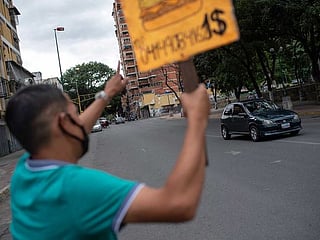Emirates gets a $2 billion lift from Dubai
New equity funds will help airline tide over a critical period for aviation industry

Dubai: Dubai has already pumped in Dh7.3 billion ($2 billion) into Emirates airline as fresh equity since March, according to media reports.
This is a follow up on Dubai Crown Prince and Chairman of the Executive Council, Sheikh Hamdan bin Mohammed Al Maktoum’s tweet in March that the government would help the airline overcome the COVID-19 crisis. The government is "fully committed to supporting Emirates airline in the current critical period”.
Due to the crisis, Emirates’ saw its profit drop 28 per cent from a year earlier for the financial year ended March 31. Meanwhile, Etihad reported operating losses of $758 million in the first six months of this year.
Need for liquidity
Sheikh Hamdan had previously said that the government would inject fresh equity into the company to help it overcome the coronavirus crisis.
In a March statement, Emirates said the government was "fully committed to supporting Emirates airline in the current critical period."
"As a shareholder of Emirates airlines, the government will inject equity considering its strategic importance to the Dubai and UAE economy and the airline’s key role in positioning Dubai as a major international aviation hub,” it added.
“The current operating model of Emirates could eat up the cash reserves quickly in the near future when the challenging winter hits the Northern Hemisphere,” said Linus Bauer, Managing Director at Bauer Aviation Advisory.
The $2 billion injection could give Emirates a boost as it would help the airline reshuffle its entire operating model, Bauer said. This includes restructuring the network and fleet, and the acquisition of additional aircraft like Boeing 787s or Airbus A350s, he added.
The global airline industry has been hit hard by the pandemic, which led to the closure of borders and grounding of fleets. Although major airlines have been relaunching international routes, a full recovery in the sector will not be seen until 2024, according to the International Air Transport Association (IATA).
Constant downward revisions
The industry body blamed slow virus containment in the US, reduced corporate travel, and weak consumer confidence. It also lowered expectations for 2020 passenger numbers to a 55 per cent decline, compared to the 46 per cent drop it had previously predicted.









